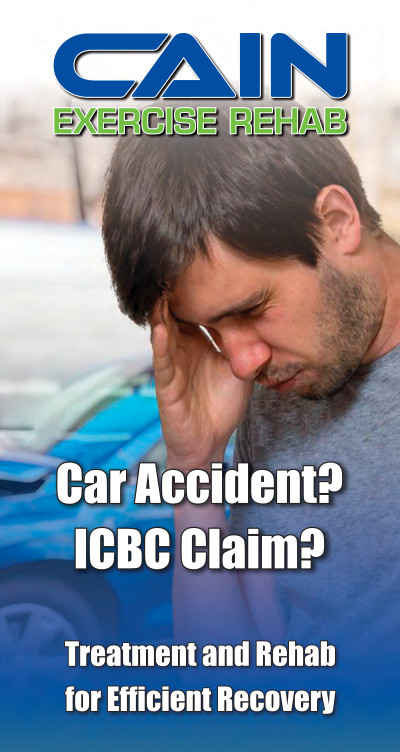Car accidents are a traumatic event. If we're lucky, we can walk away from the minor fender benders unscathed. Other times, even those low-speed bumps can leave us sore and aching. Add in the stress of calling ICBC and managing your insurance claim, managing the autobody damage, and dealing with the overall disruption to your life, and it's easy to lose control of our body's reactions. Here are a few early steps that you can take to ensure that you'll be back up and moving comfortably again in as short of a time as possible.
Do you feel otherwise good? Great! Then also continue to move around. Movement is a message to your nervous system that all is well and can help tone down any delayed red alert-messages that might come later.
How soon should you see someone? The day of the accident may be a little soon, as it is helpful to go through the above steps first and allow your nervous system to calm down. Listen to your body, however, and find that medical attention sooner if it is telling you that you need to.
1) Calm Yourself
Even minor accidents leave us in a state of shock. This makes it easy for us to not notice tightness or soreness as it onsets as well as leaves our bodies in a flight-or-fight state and potentially even more prone to developing tenson later on. In those first hours after your accident, while it's important to manage the necessities of what happened, it's also important to practice some mindfulness exercises to bring both the mind and body back to a state of calm.2) Manage The Immediate Needs (But Remember Yourself)
There's a lot of work that goes into dealing with a crash. You need to call ICBC. Your car is getting towed. You need to figure out a loaner car or some other means of temporary transport. Maybe you need to call work about not coming in today. There's a lot on the checklist! Make sure to pace yourself and tackle the list one thing at a time. Most-importantly, be mindful of your own health, energy, and stress as you do it all. It isn't worth wearing yourself down more than you need to, so seek assistance with all of these processes as needed.3) Take Time To Notice Your Body
Take stock of how your body is feeling. Is there anything aching or tight that you should pay attention to? If so, then gently moving that area of your body is recommended to help minimize any restrictions and tension that might continue to conset later.Do you feel otherwise good? Great! Then also continue to move around. Movement is a message to your nervous system that all is well and can help tone down any delayed red alert-messages that might come later.
4) Reach Out To Support
Whether it's the work of having to call your insurance and deal with your damaged car or the stress of your body starting to feel in pain, it's important to have some social support along the way. Even if a friend or family can't directly help, it's helpful to have someone to talk through the process with as you are going through the steps and prevent you from feeling overwhelmed.5) Call The Professionals
If you're hurt, it's important to get on top of those aches and pains immediately. Assuming that your injuries did not require you to stay at the hospital, be sure to reach out to a healthcare professional and seek some treatment before any conditions become too problematic.How soon should you see someone? The day of the accident may be a little soon, as it is helpful to go through the above steps first and allow your nervous system to calm down. Listen to your body, however, and find that medical attention sooner if it is telling you that you need to.
Book Online or Contact Us Directly


